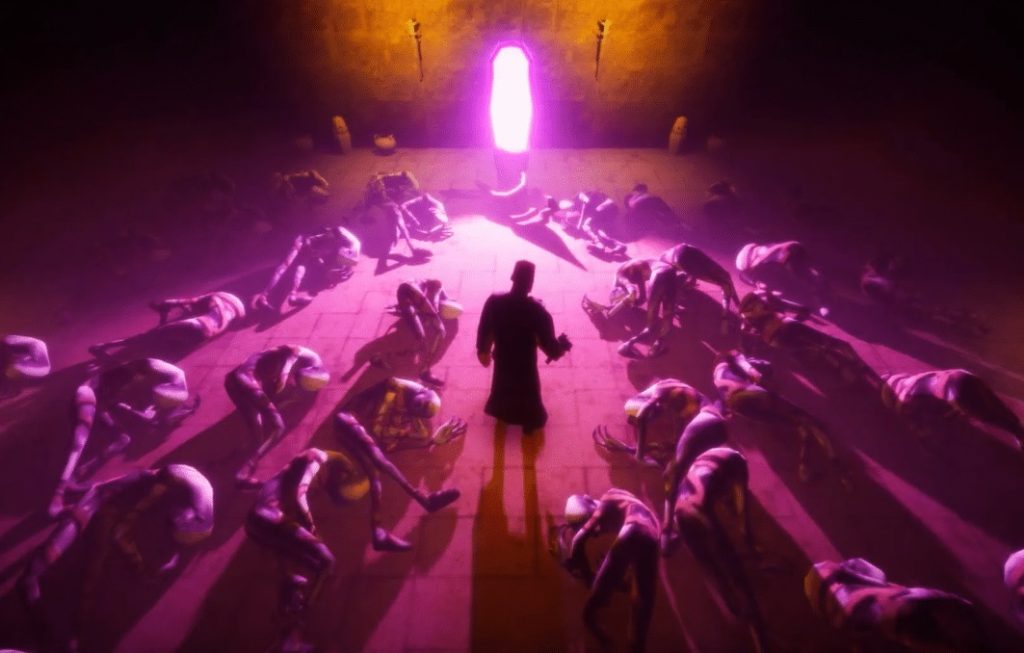Pious young nurse Maud is assigned to provide palliative care for a terminally ill former dancer, becoming intent on also saving the older woman’s soul while there is still time. As the relationship between the pair develops, the connection to the divine power she shares with her creator becomes ever more intense, while a supernatural storm gathers around her.
Saint Maud would be quite an achievement for any creative, but with it being the debut feature of writer/director Rose Glass, its multi-faceted structure is even more impressive. Variously a character study, supernatural mystery, psychological thriller and religious reflection, the elements of the plot weave in and out of one another, yet all manage to coalesce into a distinct whole rather than remaining disparate fragments.
Sanctimonious and judgemental yet also lonely and vulnerable, Maud’s faith is an integral aspect of who she is, but her desire to do good is undercut by her tendency to look down on others for their decisions. Nevertheless, her flaws are what make her so compelling, allowing her to fashion a narrative where she is the hero at the heart of her own story, blind to both her own hypocrisy and the realities of her ersatz perceptions.
Of the latter, when most people talk about feeling the power of God and his love it’s typically a simple sense of being guided by a nebulous presence, but for Maud the feeling is literal, an erotic bliss that pushes her to climax. Equally, she might have some extreme form of epilepsy, with the potential duality tacitly invoking times not that long past when people’s fervent religious experiences were what we now understand to be mental illness, issues by which Maud appears afflicted but have gone unnoticed and untreated.
As every moment in the film is from Maud’s perspective, the objective truth of events is unimportant. It’s all real to her, and we are able to empathise with the plight of her psychological suffering and confusion even if we don’t completely understand what it is she’s going through. Little is spelled out and the whole story is not made apparent, but we are able to piece together the significant aspects to form enough of her personal history we need to get a handle on what she’s enduring. Hints are dropped of a triggering trauma in her recent past that compelled her to reinvent herself, but specific details are sparse, only adding to the mystery of exactly where lies the truth about who this young woman is.
Saint Maud is an accomplished debut of thoughtful introspection and quiet intensity, its meticulously maintained balance between mundanity and divinity and lead performance of mesmerising subtlety announce both its director and star as talents with untapped potential.








